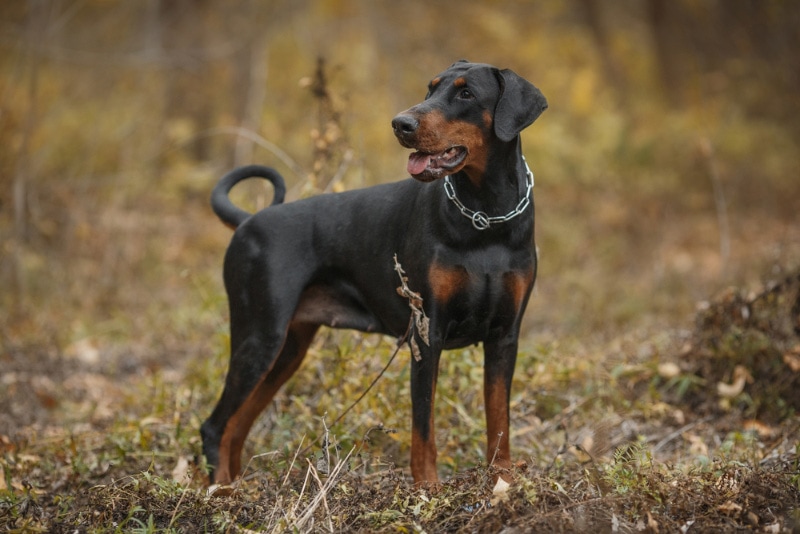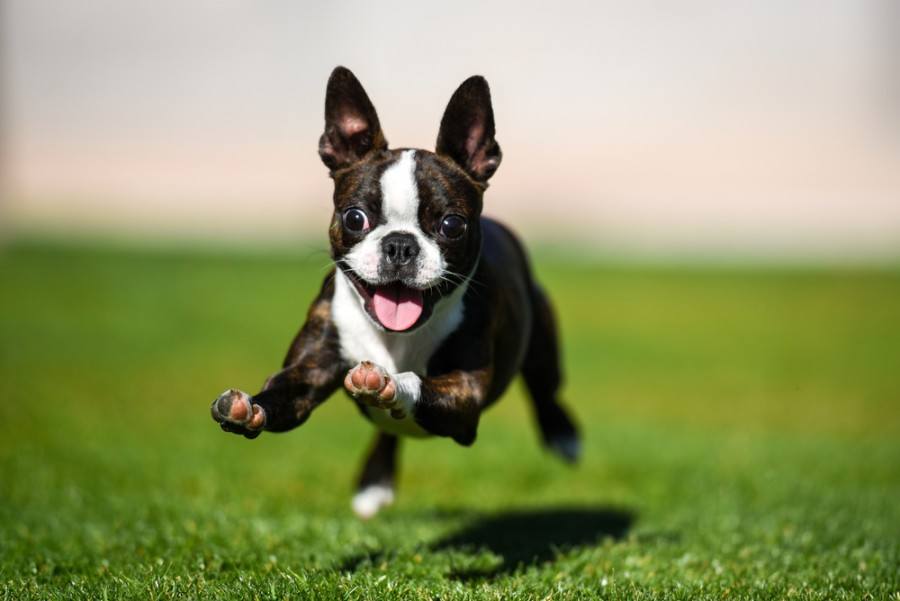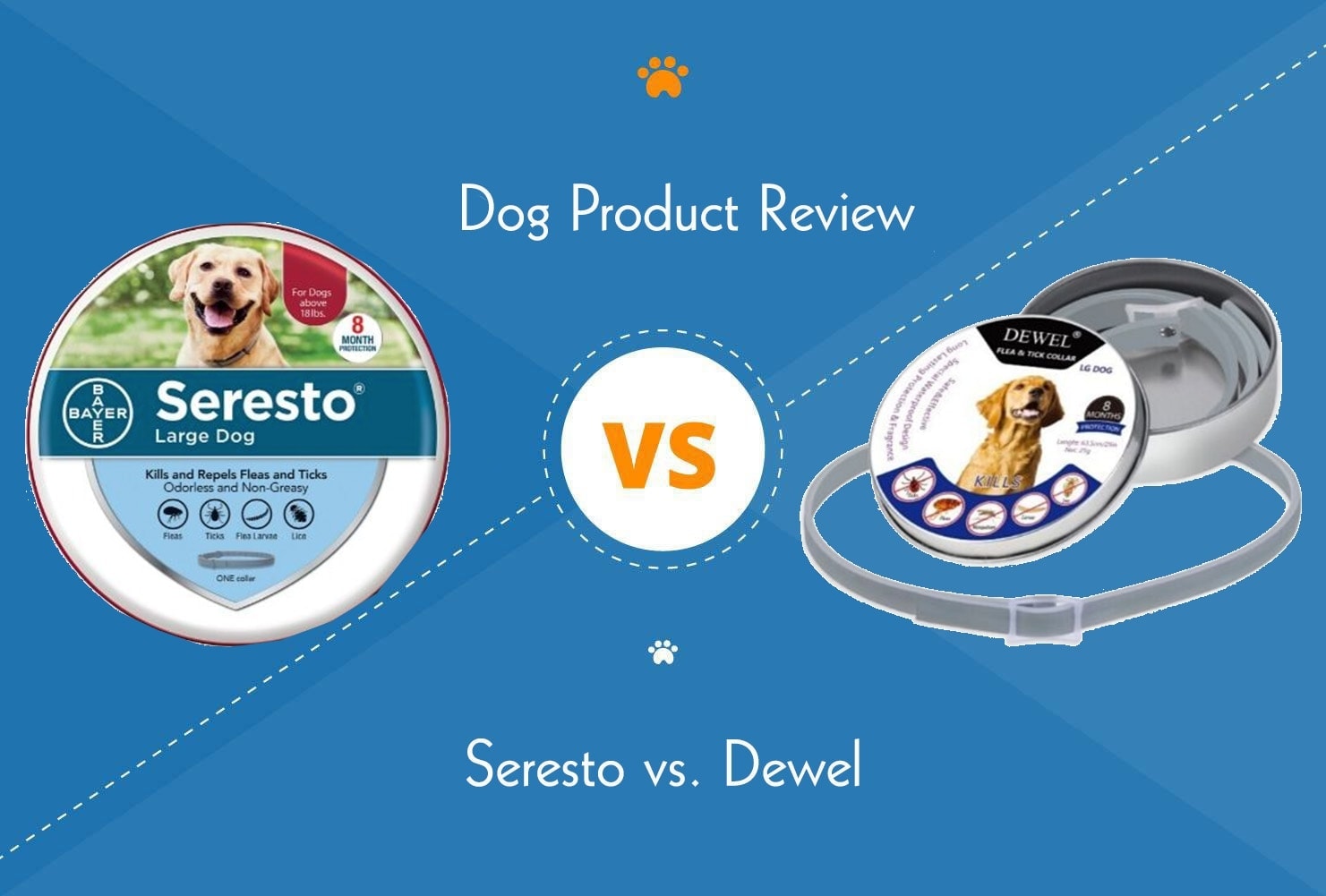How to Train a Portuguese Water Dog – 9 Expert Tips
By Grant Piper
Updated on
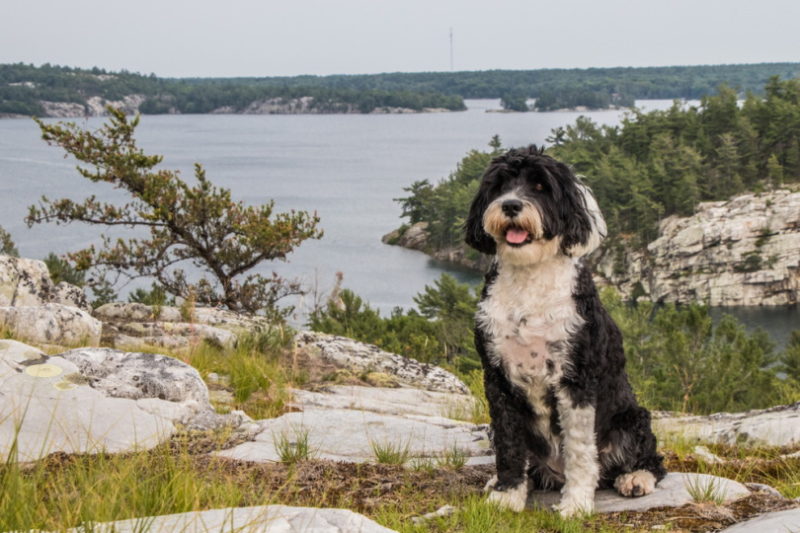
Portuguese Water Dogs are trendy. They are beloved for their intelligence and their adorable appearance. But these dogs can also be willful, energetic, and nippy. A Portuguese Water Dog that is poorly behaved or badly trained can be a hassle to deal with on a regular basis. Training for smart and energetic dogs like the Portuguese Water Dog is imperative. But what is the best way to train them? And what happens when your usual training methods aren’t working for your Water Dog puppy?
Here are nine expert tips that will help you train a Portuguese Water Dog. These tips will work for puppies or adult dogs. Make sure to stick to a plan and a schedule and be consistent in your approach.
How to Train a Portuguese Water Dog
1. Get Your Portuguese Water Dog to Respect You
Portuguese Water Dogs need a strong leader figure in their lives. If you do not assume the role of a leader who sets boundaries and earns respect, your dog will assume that role themselves. Portuguese Water Dogs are driven by respect, and if they don’t respect you, they won’t listen. Experts say if your Water Dog stays just out of reach of you, refuses to come, or blatantly disobeys commands, you know they understand they might not respect you.
To earn respect, you must act like a leader. Be firm. Set boundaries. Make eye contact with your dog. Stand over them. You must have firm movements and strong actions. Your Portuguese Water Dog needs to trust you in order to respect you and follow you. But experts say most dogs want to be followers deep down, so it is just about setting the tone. A dog that respects you and trusts you will be much easier to train down the stretch than one that doesn’t.

2. Start Teaching and Using Command Words
Portuguese Water Dogs are intelligent, and they can learn a large number of words. When you first get your dog, whether they are a puppy or an older dog, start using command words around them right away. Give commands like NO, STOP, LEAVE IT, COME, SIT, and more. These dogs will start picking up on these commands and start to memorize them. Combining command words and hand signals is another effective way of relaying information to your Portuguese Water Dog.
Also, be consistent in your wording. If you use STOP as your primary command to cease doing something, always say stop. Don’t say STOP IT or CUT IT OUT or anything else. Always use stop. The more consistent you are, the more quickly the dogs will absorb the information and retain it.
3. Repetition, Repetition, Repetition
Portuguese Water Dogs are brilliant, so they are capable of learning a large number of words and commands. The best way to get your dog to learn these things is to repeat them over and over again. Portuguese Water Dogs are affectionate and eager to please, so they want to learn how to do a job, and they want to do it well to please you. The more you repeat something, the more your Portuguese Water Dog will start to respond.
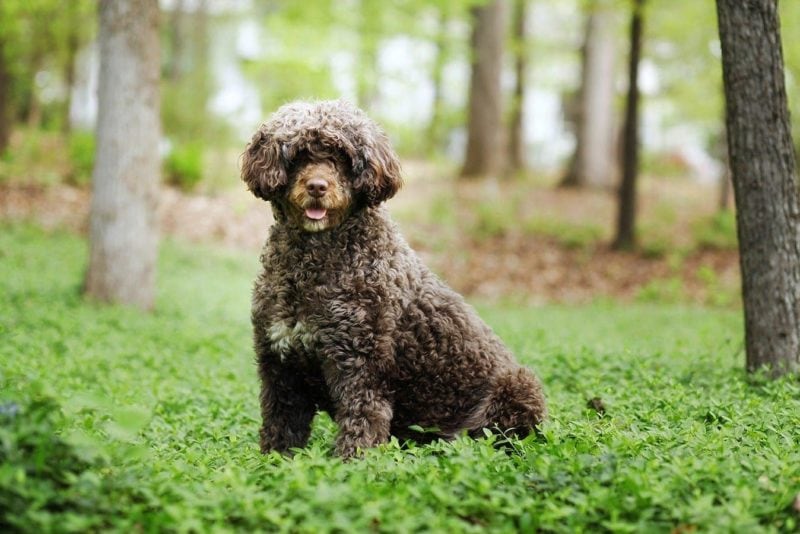
4. Set Clear Boundaries
Portuguese Water Dogs respond well to boundaries. You need to set clear boundaries with your dog and stick to them. That means that if something is not allowed once, it has to always not be allowed. For example, if you don’t want your dog jumping on you, never let them jump. You can’t make exceptions because dogs don’t understand exceptions. Similarly, if you don’t want your dogs on the couch or to beg for food when you are eating, you need to set a clear boundary and enforce it every time they try to misbehave or disobey. This ties in with the repetition aspect as well.
5. Stick to Positive Reinforcement
When you are repeating commands and setting boundaries, it can be tempting to get frustrated and use negative reinforcement to make your point. Dogs do not respond well to negative reinforcement. You should always try to use positive reinforcement when possible. Positive reinforcement means acknowledging good behavior and rewarding it with affection or treats. One key aspect of positive reinforcement is to ignore bad behavior. If you don’t want your dog to do something, ignore that behavior. Don’t yell or raise your voice or use physical violence. Ignore bad behavior and reward good behavior.
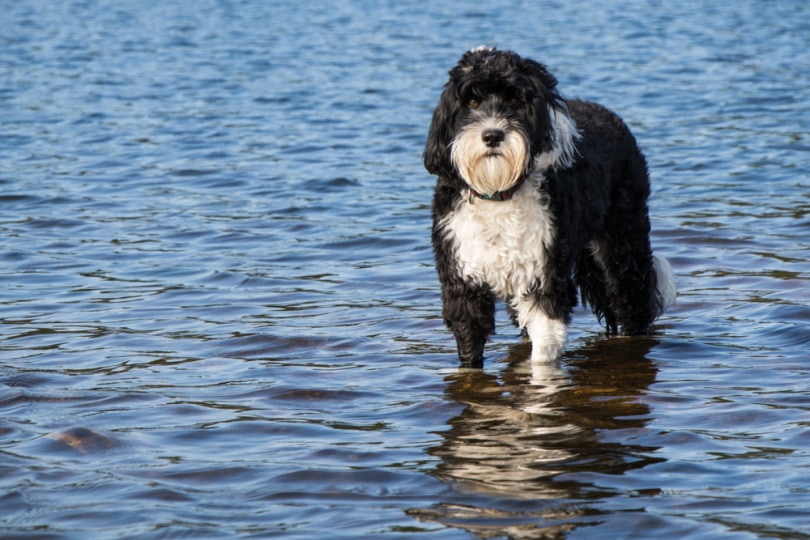
6. Use a Crate
Some people are not comfortable using a dog crate. They feel like they are unfriendly cages. But experts agree that crates are valuable training tools. Crates are one of the best ways to house-train a new puppy. That means that you should get a dog crate, get used to using it, and stick to a schedule with it. Your dog does not have to always be in the crate, and once they are properly trained, they might not have to go back in very often. However, the crate is very useful while training. Being crate trained is also useful for dogs in general because there might be times in your dog’s life when they must be put into a crate, so being able to relax in a crate is extremely important.
7. Build and Stick to a Schedule
Portuguese Water Dogs respond very well to a schedule. Using a schedule is a great way to train a dog in a variety of different ways. Schedules can be used to help potty train your dog by taking them out at set intervals. Schedules can also be used to teach your dog when it is time for a walk and when it is time to lie down and be calm. The key to any good schedule is to set one and stick to it. If you let your dog out at 7 AM every morning, you should try to do it at the same time every day. Try to walk your dog in the evening at the same time as well. This schedule will give your dog cues as to what is happening, which helps them behave themselves.

8. How to Stop Nippiness
Some Portuguese Water Dogs can be nippy. This is especially true of younger dogs. Nippiness can be annoying and frightening, especially for people with children. No one wants a dog that can potentially bite. The good news is that there are some ways that you can nip nippiness in the bud.
One of the first things you should do when your dog nips you is to let out a high-pitched yelp. A yelp lets your dog know that they are biting too hard. Dogs whine and yelp to tell each other when they are playing too rough, and replicating the sound back to your dog will convey the same message. Your dog shouldn’t want to actually hurt you, so they should back off if you show signs of pain.
Another thing to do is disengage and ignore bad behavior. If your dog starts nipping you while playing, leave the game and ignore them. This can be enough to signal that you don’t want to interact in that way.
Lastly, try substituting your hand for a bone or toy and then walk away. Teach your dog to bite and chew on toys, not hands.
Doing a combination of these expert tips can quickly and efficiently stop your Portuguese Water Dog from nipping or biting.
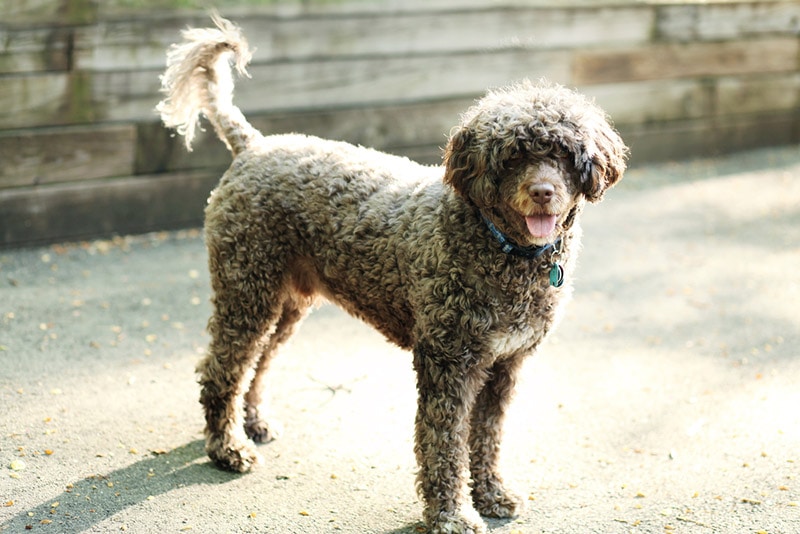
9. Be Patient
The last tip, which applies to all dogs, is to be patient. Dogs do not train overnight. Good training can take weeks or even months to settle in. If you expect your dog to become crate-trained or house-trained or learn commands in just a day or two, your expectations are out of whack. Dogs are going to misbehave. They are going to have accidents. They are going to ignore you. And that is all part of the process. Be patient. Be consistent. Be firm. Use positive reinforcement. If you stick to your training regime, your dog will eventually come around.
 Conclusion
Conclusion
These tips will help you train a Portuguese Water Dog. Good training takes time and patience to achieve, but many Portuguese Water Dogs can start behaving consistently after 2 to 3 weeks of solid training. The keys are consistency, repetitions, and boundaries. Portuguese Water Dogs are willful and smart as a whip, so they require firm boundaries and respect for the best results.
Featured Image Credit: Lynda McFaul, Shutterstock

